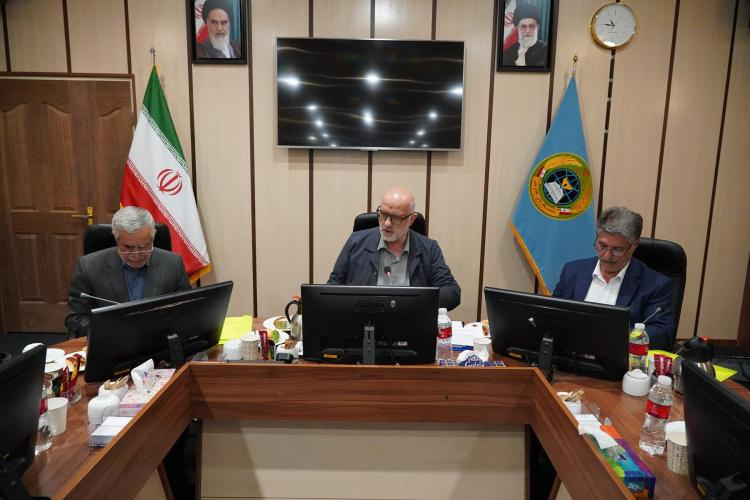Third Specialized Meeting of Invited Professors for the Crisis Management Training Course at the Supreme National Defense University

The third specialized meeting of the Crisis Management Thought Leaders, organized by the Strategic Crisis Management Research Group, National Mobilization, and Resilience, along with several experts and consultants in this field, was held this morning. The meeting took place in the Shahid Seyyed Shirazi conference hall of the Supreme National Defense University, attended by Engineer Hossein Bagheri, the Deputy Head of the Crisis Management Group. The purpose of the meeting was to facilitate discussions among professors specializing in natural crisis management for their participation in the training course for governors from across the country.
In this meeting, Engineer Bagheri began by welcoming the attendees and expressing gratitude for their presence. He highlighted some of the statements made by the Supreme Leader regarding crisis management and emphasized the importance of applying the managerial qualities of being protective and knowledgeable. He urged the attendees, particularly the esteemed governors, district governors, and senior provincial managers, to take special care in effectively implementing the assigned programs and responsibilities, and to utilize educational management centers accordingly.
He continued by stating: "Today, as we gather here, 483 district governors across the country are primarily responsible for crisis management. In light of the Cabinet's resolution regarding the empowerment of governors and the memorandum of understanding between the Ministry of Interior and the Supreme National Defense University, the Governance School of this university, along with the Strategic Crisis Management Research Group, National Mobilization, and Resilience, is responsible for this important task. They will provide continuous training for governors through the transfer of experiences from the experienced professors in this group and by presenting the prepared curriculum outlines."
Then, Dr. Seyyed Mahmoud Fatemi Oghda, the head of the Education and Empowerment Working Group of the Crisis Management Group, stated: "Following the first training course for governors held in Markazi Province, and considering the 12-day period of the imposed war, we continued the training in the form of non-residential and virtual courses. Five textbooks and educational materials developed by the university were made available to the esteemed governors upon the directive of the honorable Minister of Interior."
Engineer Ismail Najjar, the Deputy Minister of Interior and former head of the National Crisis Management Organization during the twelfth government, who attended the meeting as a crisis management professor, added: "In the context of crisis management, the current courses focus on the issues faced by each province in the areas of common crisis management, including security crises, natural disasters, and man-made disasters."
Subsequently, Dr. Hesam, the Executive Deputy of the National Crisis Management Organization, stated: "Future courses will be conducted in a scenario-based format, and esteemed professors should consider the mobilization of resources and national resilience as a fundamental pillar of crisis management. They should focus on the commonalities and important aspects of the subject."
The Executive Deputy of the National Crisis Management Organization stated: "Considering the framework of overarching documents and in alignment with the general policies of the system, two main pillars—decision-making power and field management—will be among the objectives of this course."



Your Comment :